
This exercise is part of the Wellbeing Bootcamp.
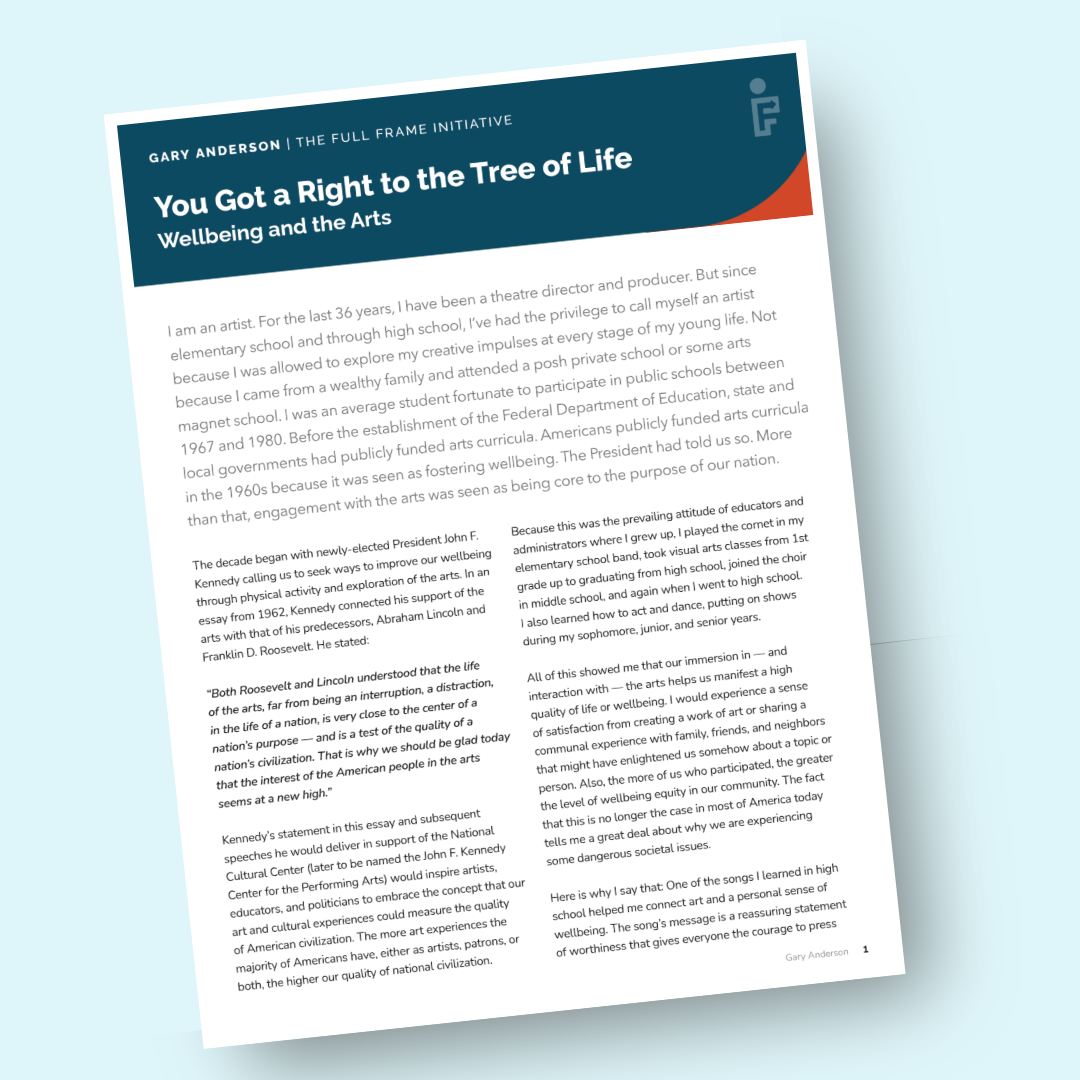
FFI Senior Fellow Gary Anderson, a theater director and producer with over 36 years of experience, makes a compelling case for centering the arts as a pathway to wellbeing and democracy.
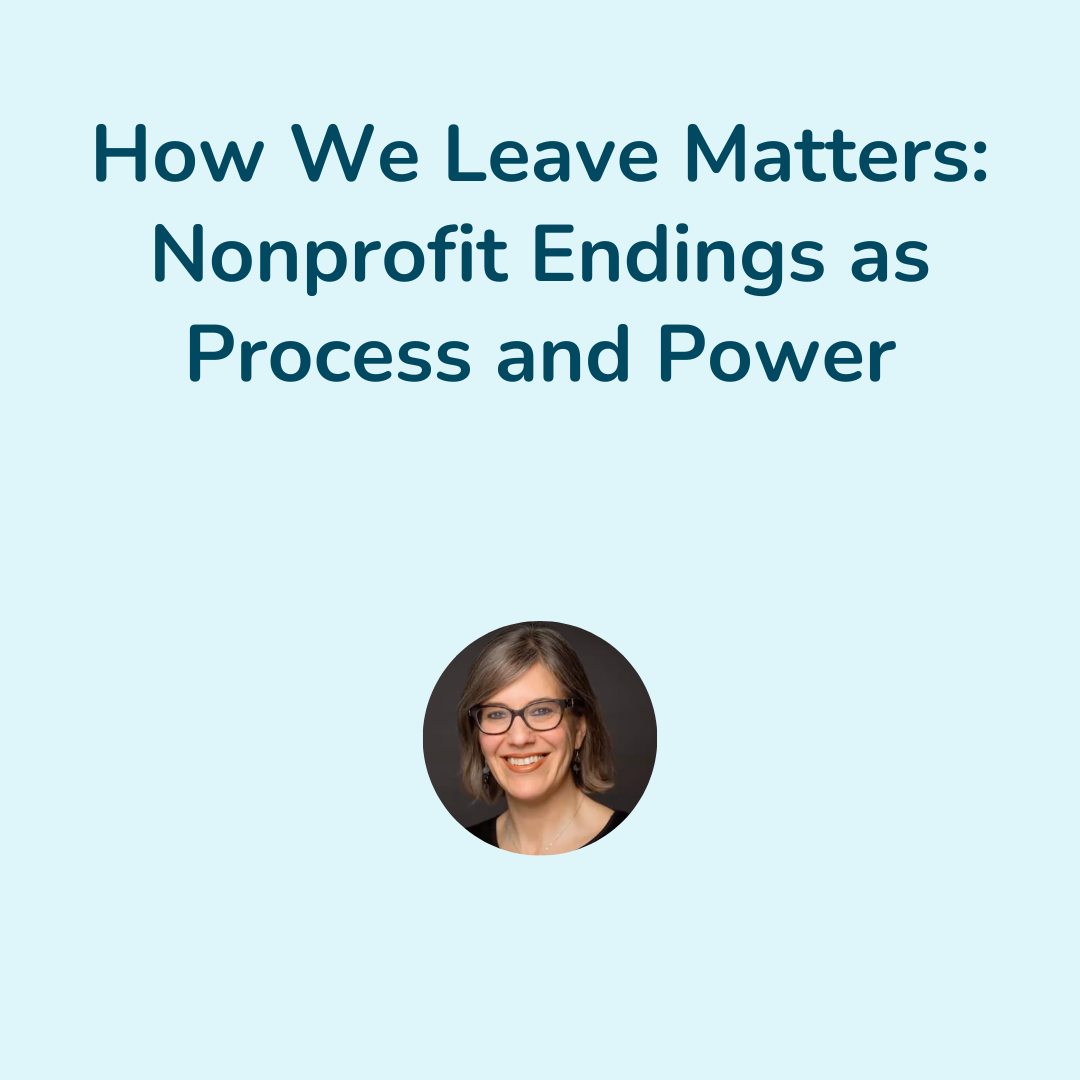
FFI Founder & CEO Katya Fels Smyth shared about our mission transition as part of the RX Foundation’s Power is a Social Determinant of Health series.
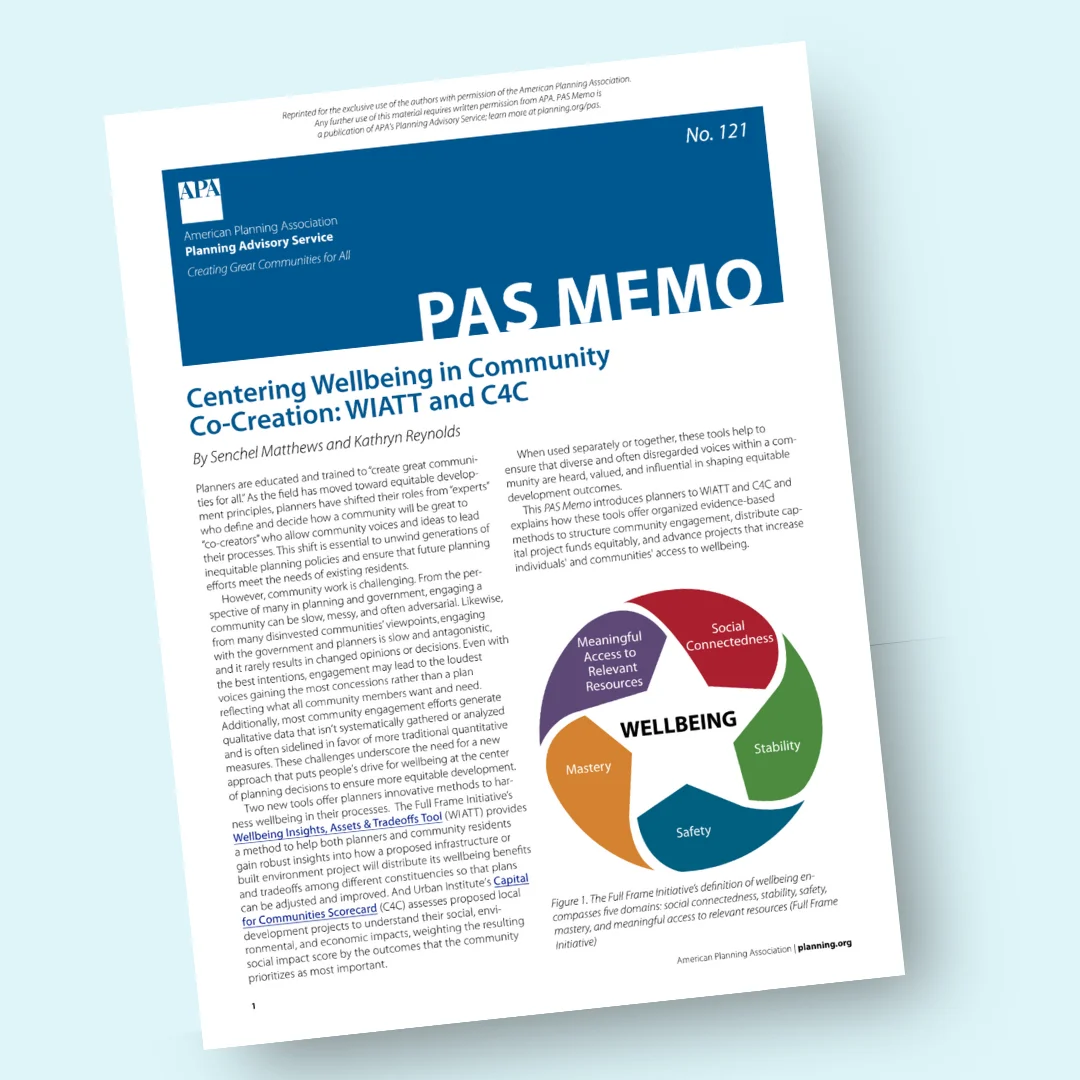
This memo was produced for the American Planning Association that provided insights on two tools to embed wellbeing equity and community co-creation in the planning field – FFI's Wellbeing Insights, Assets & Tradeoffs Tool (WIATT) and Urban Institute’s Capital for Communities Scorecard (C4C).
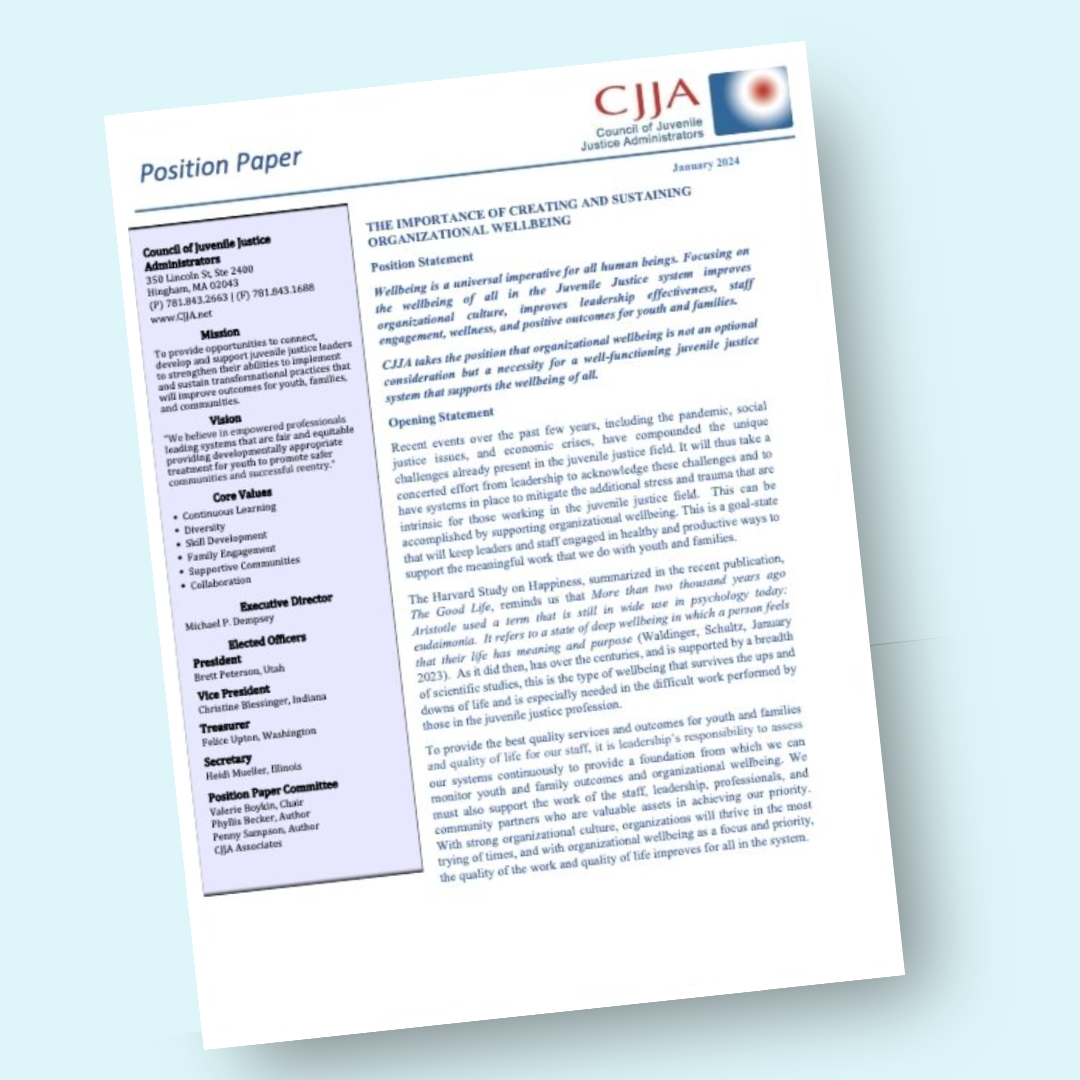
The Council for Juvenile Justice Administrators published a position paper with guidance on how to apply a wellbeing framework to juvenile justice.
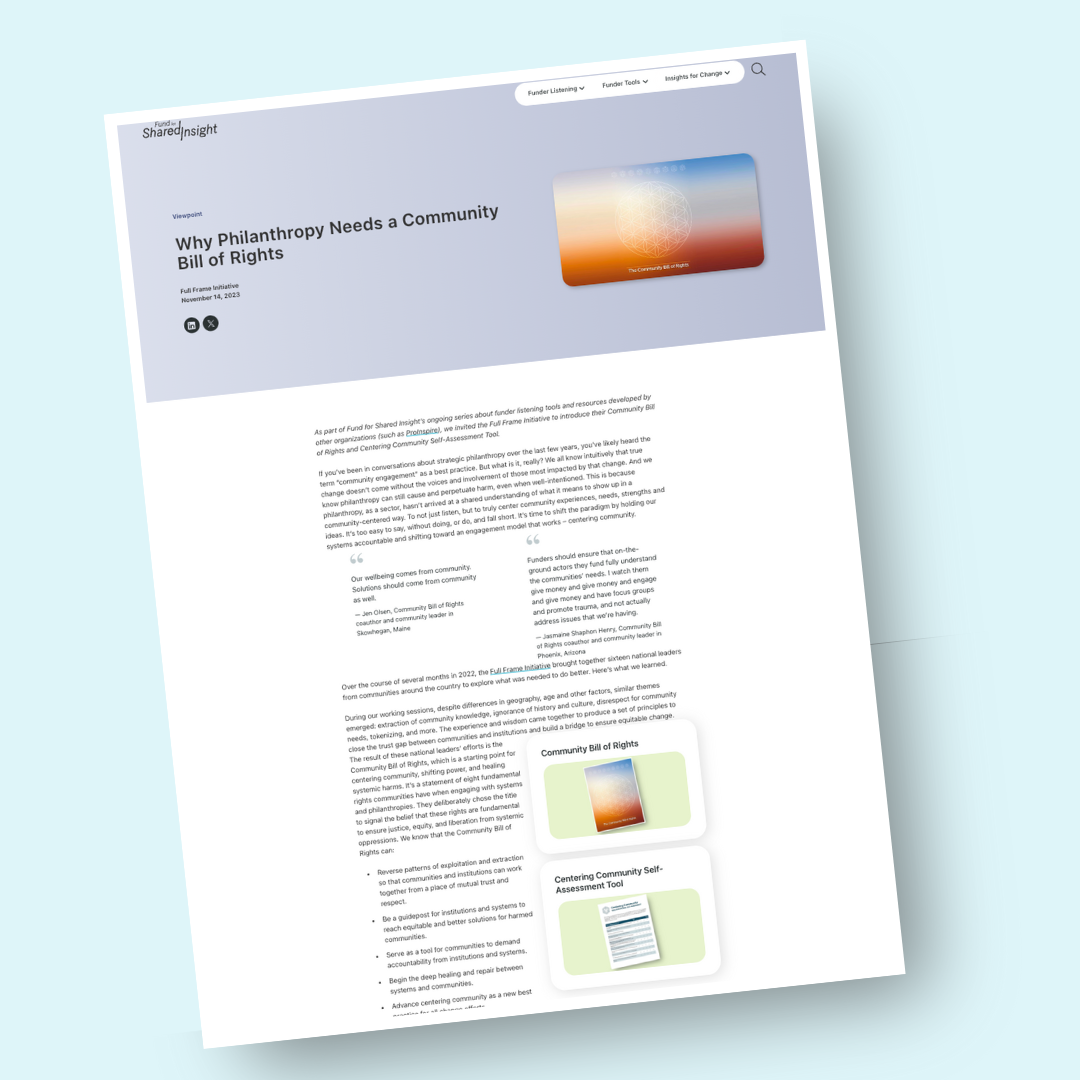
The Fund for Shared Insight invited the Full Frame Initiative to share the Community Bill of Rights and Centering Community Self-Assessment Tool as integral resources for philanthropic organizations.
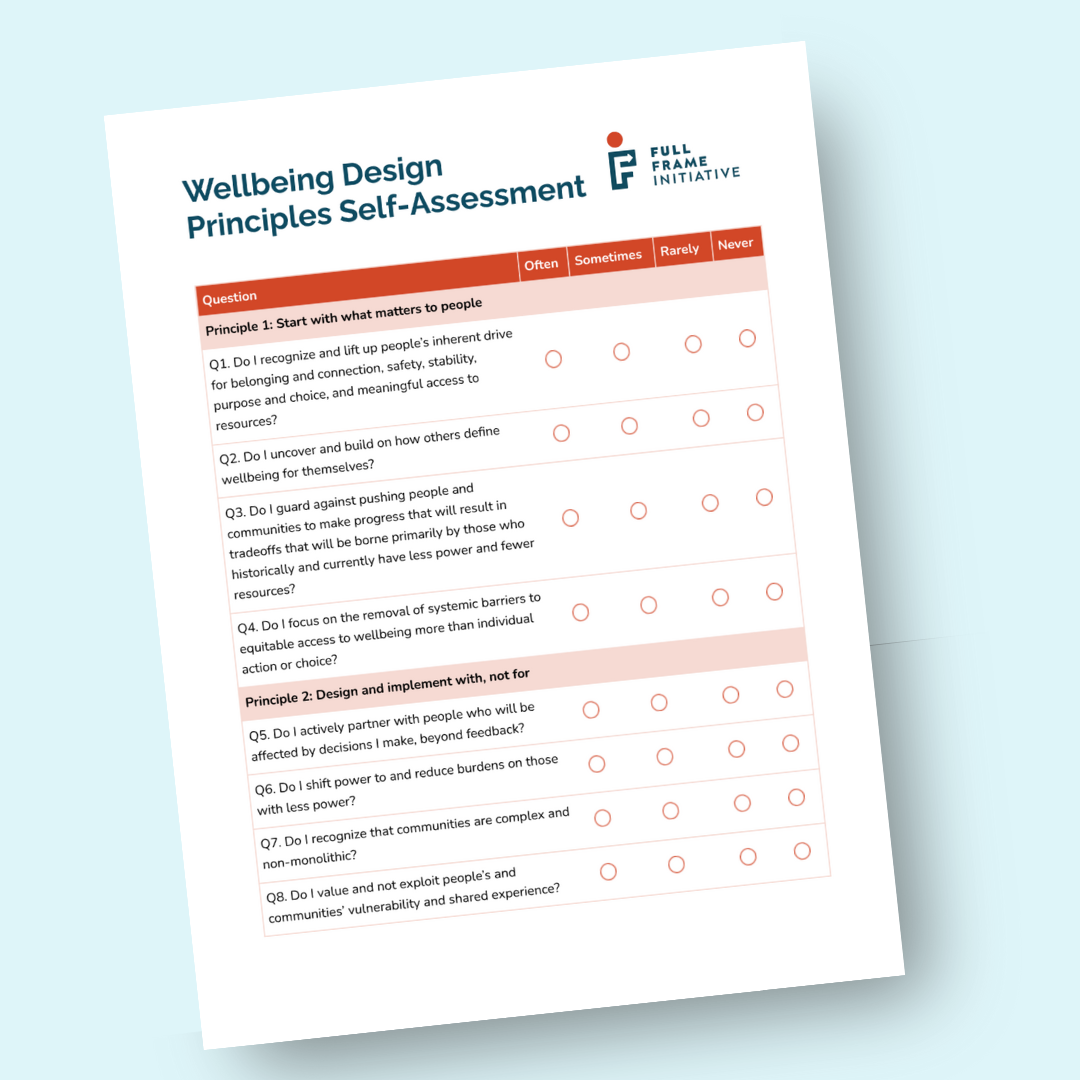
This assessment will help you gauge your efforts to create equitable access to wellbeing and uncover new opportunities to implement wellbeing design principles.
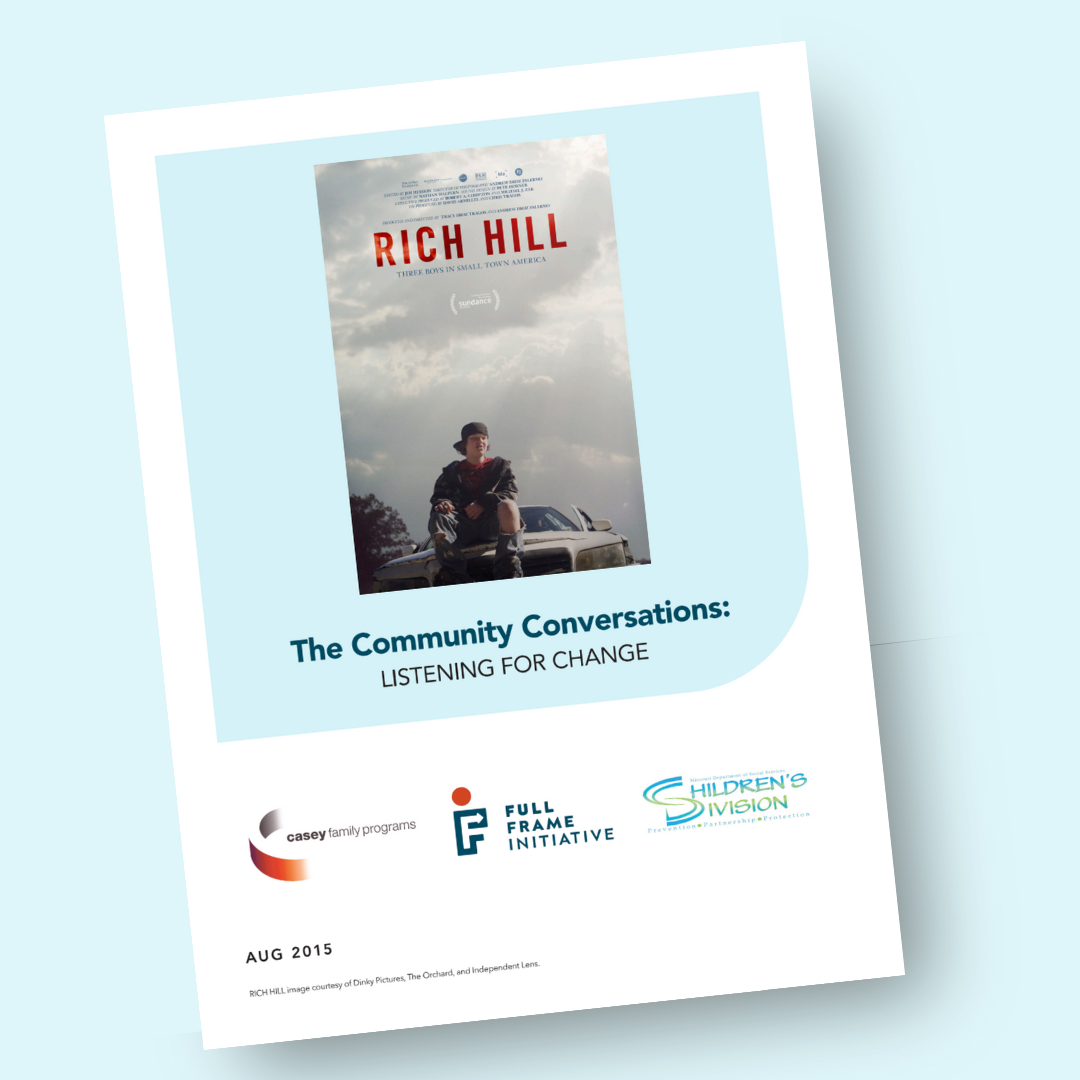
Learn what we heard through community conversations across Missouri and how it led to a paradigm-shifting approach to transforming the state's child welfare system.
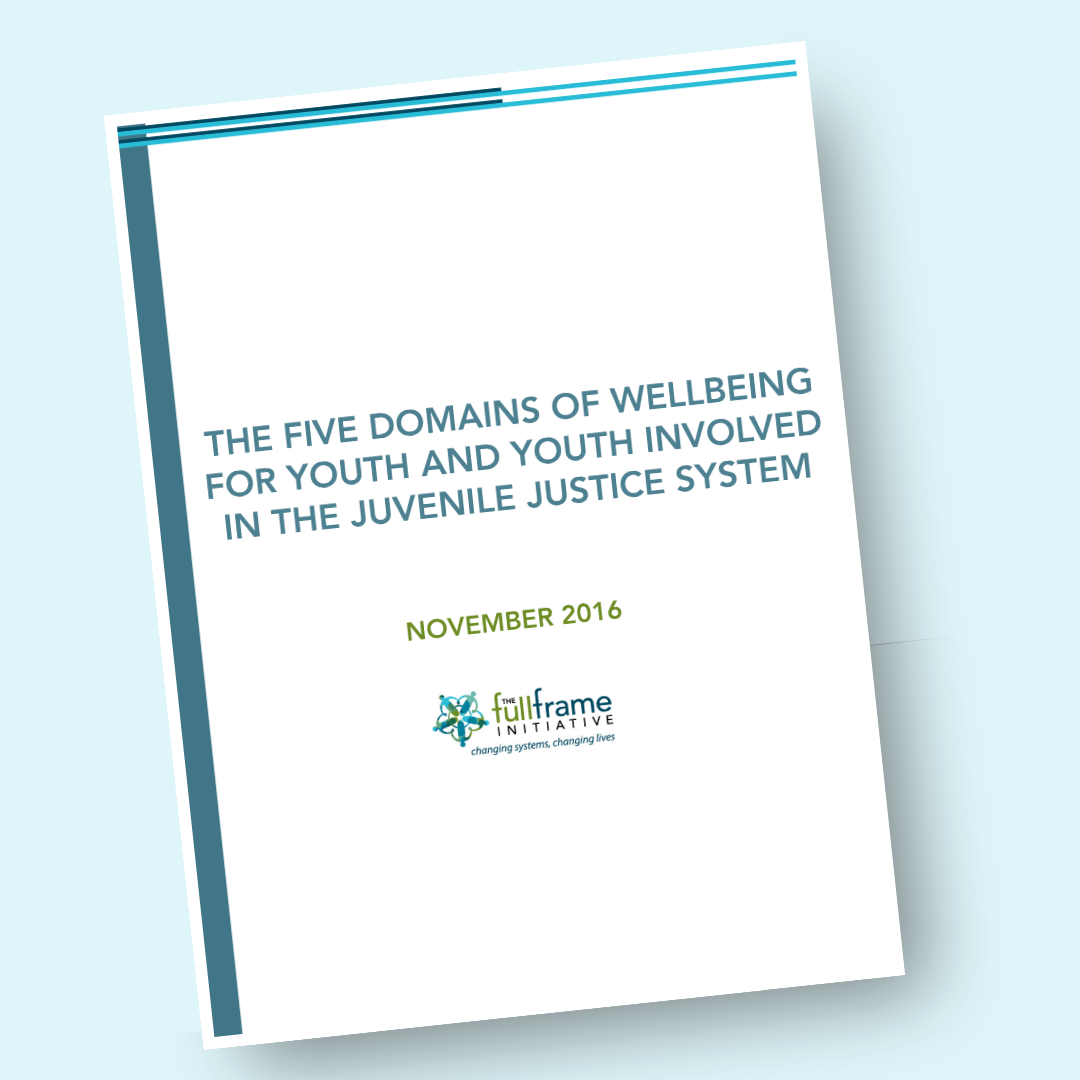
This resource provides guidance for anyone engaging with and advocating for youth, with specific guidance for juvenile justice staff who wish to reinforce existing and develop new practices and systems that support wellbeing.

Every change comes with both benefits and consequences. These are called tradeoffs. Watch this video to learn how tradeoffs work in practice.
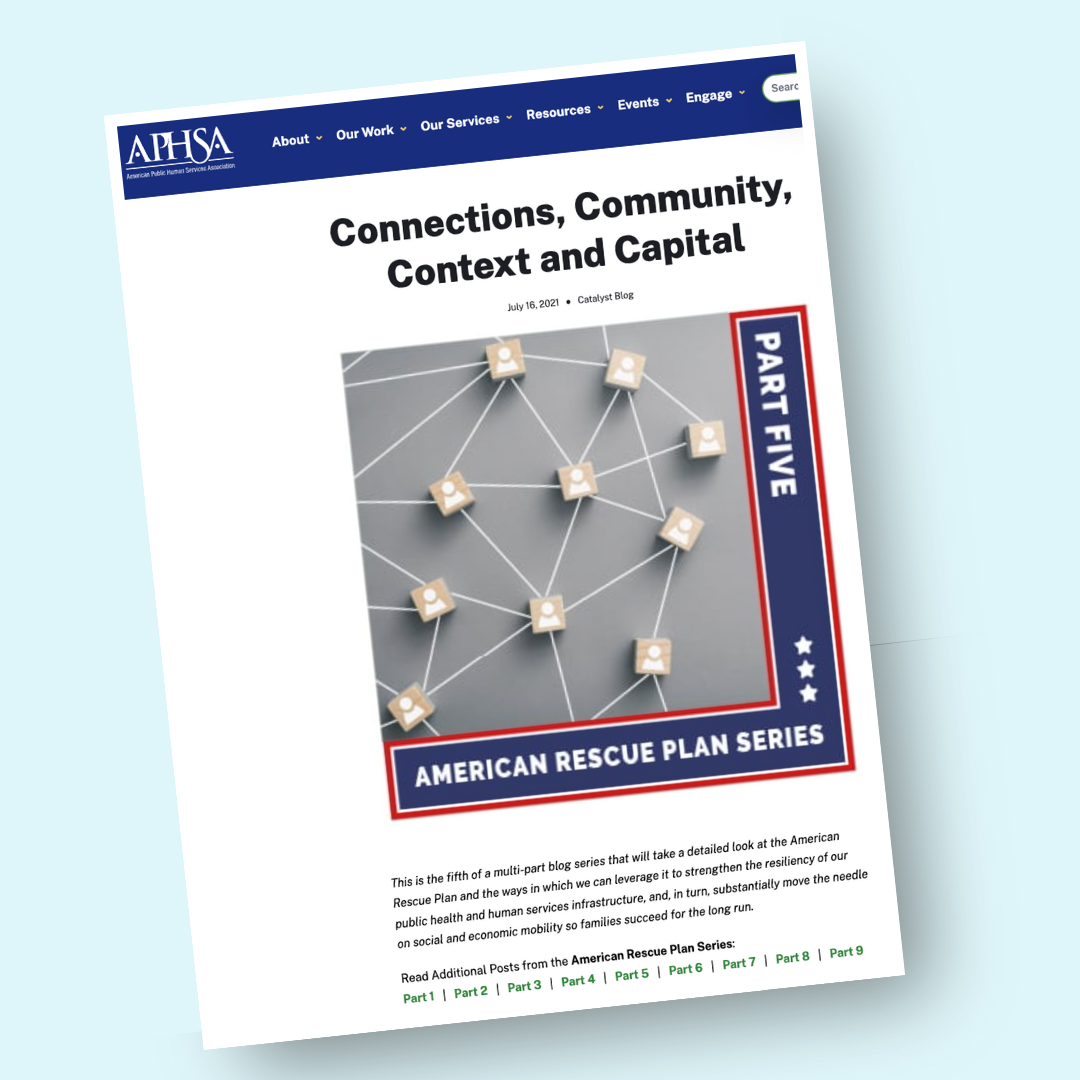
Katya Fels Smyth contributed an article to APHSA's Modern Health and Human Services blog about how to leverage the American Rescue Plan to create a country where everyone has a fair shot at wellbeing.
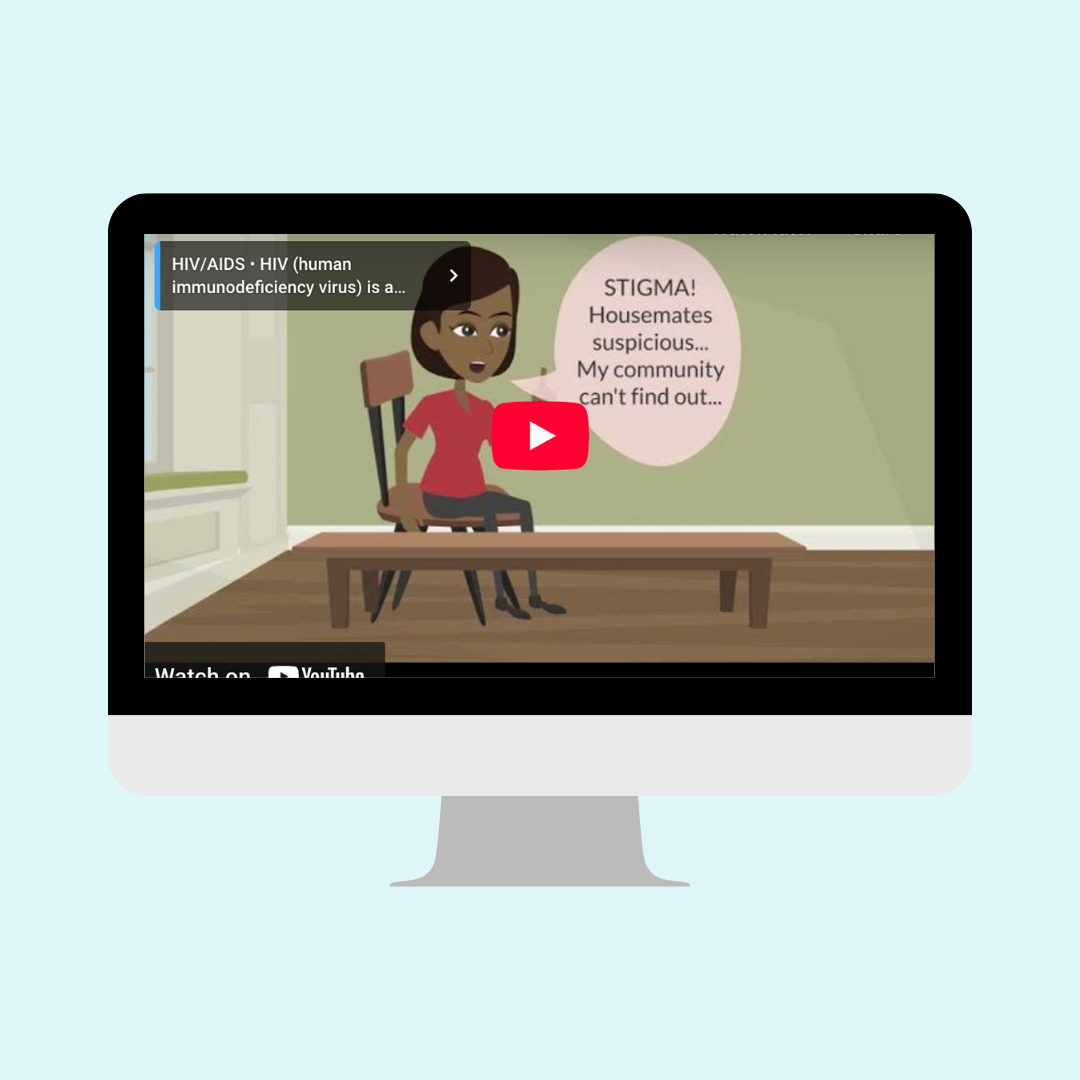
We believe paying attention to the wellbeing of the people, families and communities we work with leads to improved health outcomes – not the reverse. Maxine's story demonstrates the reasons why.